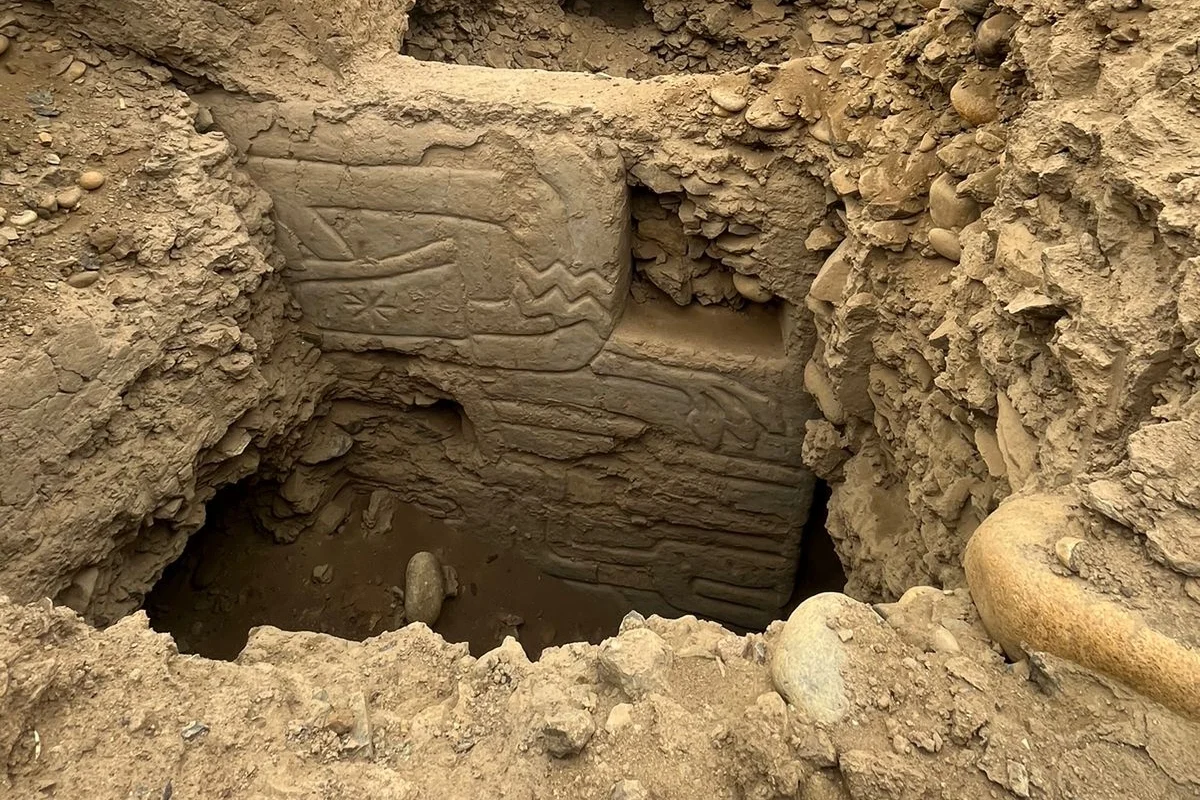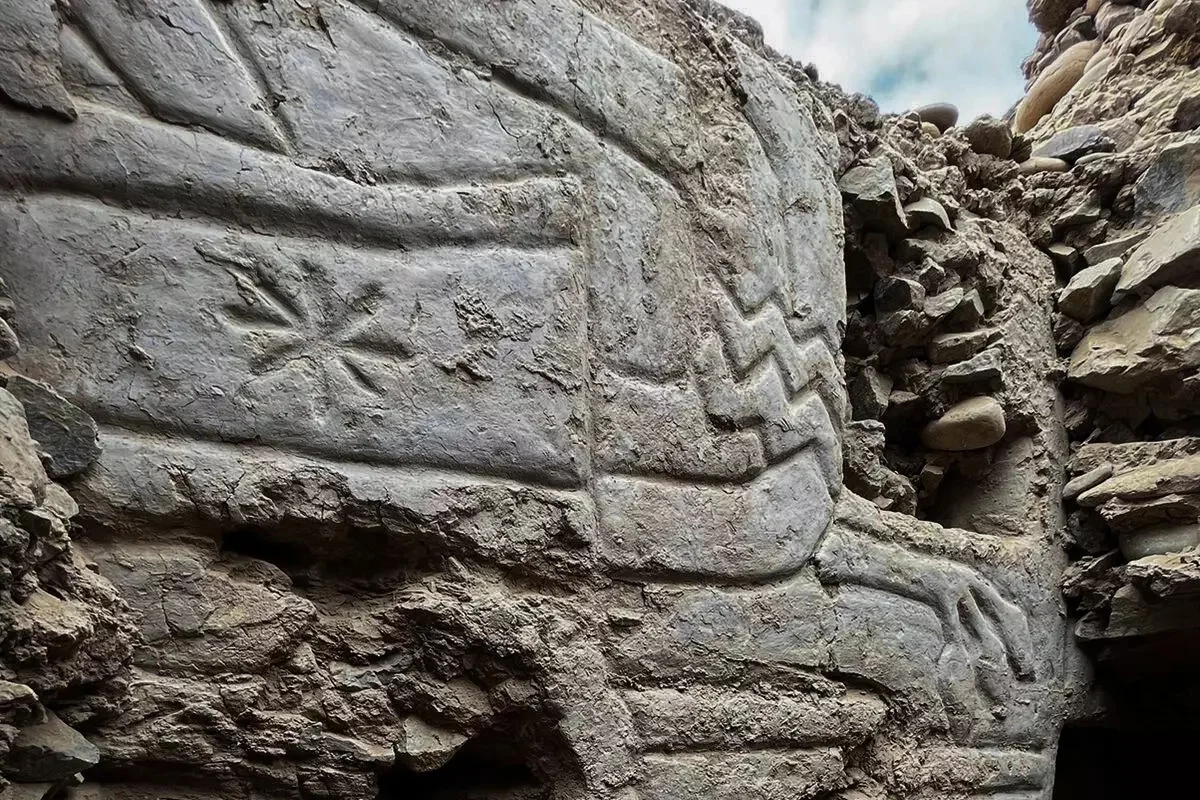An ancient 3D polychrome mural dating back 3,000 to 4,000 years has been discovered at the Huaca Yolanda archaeological site in the La Libertad region of Peru.
Huaca Yolanda is a ceremonial complex extending over an area of 20 hectares. It contains plazas and large architectural features, like those also found at
the Sacred City of Caral-Supe.
According to a press statement issued by a team of archaeologists from the Pontifical Catholic University of Peru (PUCP), and from the National University of Trujillo, the discovery is being hailed as an unpreceded find – with its 3D design and symbolic iconography.
The mural, measuring 4 metres long and 1.5 metres high, was found on the inner wall of an atrium inside a U-shaped temple complex. It features fish-like motifs, including one with a body shaped like a 3D fishing net, as well as depictions of plants and stars.

“The figures not only depict marine fauna but also suggest scenes with a deep spiritual connection to the surrounding resources. The piece, being double-sided, would have been part of a sacred space, probably dedicated to rituals linked to water and fertility,” said Ana Cecilia Mauricio, an archaeologist from PUCP.
Samples taken from the mural, which is composed of clay and organic materials, will undergo radiocarbon dating and a pigment analysis to determine its exact age and composition.
Mauricio warned that the site is under threat from looting and unregulated agricultural expansion. She is calling on the Ministry of Culture and other authorities to urgently intervene and protect the site, which currently lacks formal boundaries or security.
Header Image Credit : PUCP
Sources : PUCP





